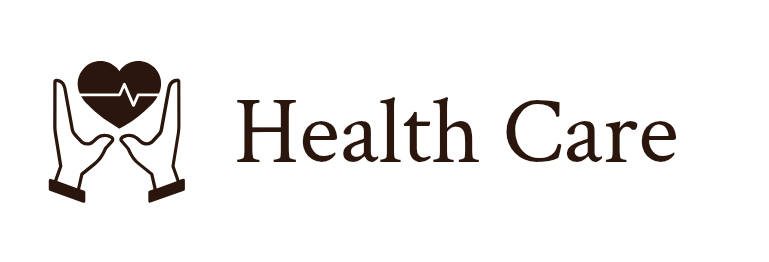introduction
From Weight Loss to Disease Prevention: Why Fasting May Be the Key to Optimal Health

Are you tired of the same old diet fads that promise quick weight loss but cannot deliver long-term results? Have you ever considered fasting to not only shed those unwanted pounds but also prevent chronic diseases? Well, it’s time to rethink your approach to wellness because fasting might just be the missing link in achieving optimal health. In this blog post, we’ll explore the science behind fasting and its potential benefits for both body and mind. So sit tight, grab some water (or maybe not), and let’s dive into why fasting could be your key to a healthier life!
What is Fasting (vrat)?
Fasting is an ancient practice that has been used for centuries to promote optimal health. vrat is defined as abstaining from all food and drink for a specific period. There are many types of fasting protocols, but the most common is intermittent fasting, which involves alternating periods of vrat with periods of eating.
vrat has been shown to have numerous health benefits, including weight loss, improved insulin sensitivity, reduced inflammation, and enhanced brain function. vrat has also been shown to help prevent chronic diseases such as heart disease, stroke, cancer, and Alzheimer’s disease.
There are many ways too fast, so it’s important to find a protocol that works best for you. If you’re new to fasting, it’s best to start with shorter fasts and gradually increase the duration of your fasts over time. It’s also important to make sure that you’re staying hydrated and consuming enough nutrients during your eating periods.
If you’re interested in trying vrat, there are several resources available to help you get started. The book “The Complete Guide to Fasting” by Dr. Jason Jung is a great resource for those who want to learn more about the science behind vrat and how to implement it into their lives. There are also a number of online forums and websites dedicated to helping people who are interested in vrat connect with others who are doing it.
Benefits of Fasting
There are many benefits of vrat that range from weight loss to disease prevention. When done correctly, fasting can help to improve your overall health and well-being.
vrat has been shown to help with weight loss by reducing the amount of calories you consume in a day. This can lead to a reduction in body fat and an increase in lean muscle mass. In addition, vrat has been shown to boost your metabolism and help burn more fat.
Virat has also been shown to improve your blood sugar levels and insulin sensitivity. This can be beneficial for those who are at risk for type 2 diabetes or who already have the condition. It can also help to lower your cholesterol and triglyceride levels, which can reduce your risk for heart disease.
In addition to the physical benefits of fasting, there are also mental and emotional benefits. It has been shown to improve brain function and increase cognitive performance. It can also help to reduce stress levels and improve mood.
Different type Fasting
vrat has been practiced for centuries, but only recently has it gained popularity as a health and wellness trend. From weight loss to disease prevention, there are many benefits of vrat. But what is vrat? And what are the different types of fasting?
vrat is the act of abstaining from food and/or drink for a period of time. There are many different reasons why people fast, but the most common reason is for religious or spiritual purposes. vrat Is also often done for health reasons, such as weight loss or disease prevention.
There are several different types of vrat, each with its own set of rules and guidelines. The most common types of fasting include:
- Intermittent fasting: This is the most popular type of vrat, and it involves alternating between periods of eating and periods of vrat. There are many different ways to do intermittent vrat, but the most common is the 16/8 method, which involves fasting for 16 hours and eating during an 8-hour window.
- Alternate-day fasting: This type of vrat involves alternating between days of eating and days of complete vrat. For example, you might eat normally on Monday and Wednesday, but fast completely on Tuesday and Thursday.
- Whole-day fasting: As the name suggests, this type of vrat involves not eating anything at all for an entire day. This can be done once per week or more frequently, depending on your goals.
- Extended fast
Pros and Cons of vrat
When it comes to vrat, there are a lot of pros and cons that need to be considered. On the one hand, vrat has been shown to be an effective weight loss tool. It can also help to regulate blood sugar levels and improve insulin sensitivity. On the other hand, vrat can also lead to dehydration, electrolyte imbalances, and dizziness.
The best way to approach vrat is to consult with a healthcare professional beforehand to make sure it is safe for you. If you do decide to fast, start slowly with shorter periods of time and gradually increase the duration as your body adjusts.
How to Get Started with Fasting
When it comes to vrat, there is no one-size-fits-all approach. The best way to fast is to start slowly and gradually increase the duration and frequency of your fasts. If you’re new to fasting, start with a 12-hour fast once or twice per week. You can gradually increase the length of your fasts as your tolerance increases.
There are a few things to keep in mind when you’re getting started with vrat:
- Drink plenty of water: Staying hydrated is important, especially when you’re not eating solid food. Make sure to drink 8-10 glasses of water per day.
- Avoid sugary drinks: Stick to water, unsweetened tea, and black coffee while you’re fasting. Sugary drinks will only make you more hungry and can lead to weight gain.
- Eat healthy meals: When you eat, make sure to fuel your body with healthy foods that will give you energy and promote weight loss. This includes lean protein, vegetables, and healthy fats.
- Avoid processed foods: Processed foods are high in calories and low in nutrients, which can lead to weight gain during a fast. Stick to whole foods instead.
- Get enough sleep: vrat can be taxing on your body, so make sure to get 7-8 hours of sleep each night. This will help your body recover and stay energized throughout the day.
Tips for Making Fasting Easier
- Drink plenty of water: Staying hydrated is key to making vrat easier. Drinking plenty of water will help to keep you feeling full and will also help to flush out toxins from your body.
- Eat small meals: Eating smaller meals more frequently can help to stave off hunger during a fast. Make sure to include plenty of protein and healthy fats in your diet to help keep you satisfied.
- Avoid processed foods: When you are vrat, it is important to avoid processed foods as they can make you feel sluggish and can cause blood sugar spikes. Stick to whole, unprocessed foods as much as possible.
- Exercise regularly: Exercise can help to boost your metabolism and can also help to reduce hunger during a fast. Try to get in some form of exercise every day, even if it is just a brisk walk around the block.
- Get enough sleep: Getting adequate sleep is essential for optimal health, and it can also help make vrat easier. aim for at least 7-8 hours of sleep each night
Potential Risks of vrat
While vrat has been shown to have incredible health benefits, there are also some potential risks that should be considered before starting a vrat protocol. These risks include:
- Dehydration: When you fast, your body is going without food and water for an extended period of time. This can lead to dehydration if you’re not careful to stay hydrated throughout the day. Be sure to drink plenty of fluids (preferably water) when fasting.
- Low blood sugar: vrat can cause your blood sugar levels to drop, which can lead to dizziness, lightheadedness, and fatigue. If you have diabetes or another condition that requires you to maintain stable blood sugar levels, it’s important to speak with your doctor before starting a vrat protocol.
- Nutritional deficiencies: Since you’re not consuming any solid food while vrat, there’s a risk that you could become deficient in certain vitamins and minerals if you don’t supplement properly. Be sure to take a multivitamin and eat plenty of nutrient-rich foods when you break your fast each day.
- Digestive problems: vrat can sometimes lead to digestive issues like constipation or diarrhea. To avoid this, make sure you’re drinking plenty of fluids and eating fiber-rich foods when you break your fast each day.
Conclusion
Fasting has been shown to have many potential health benefits, from weight loss and disease prevention to improved mental clarity and focus. While vrat should not be undertaken without prior research or medical supervision, it can be a powerful tool for improving overall health when practiced safely and responsibly. Whether you’re looking to lose some excess weight or simply want to improve your physical and mental well-being, vrat could be the key that unlocks optimal health in your life.

